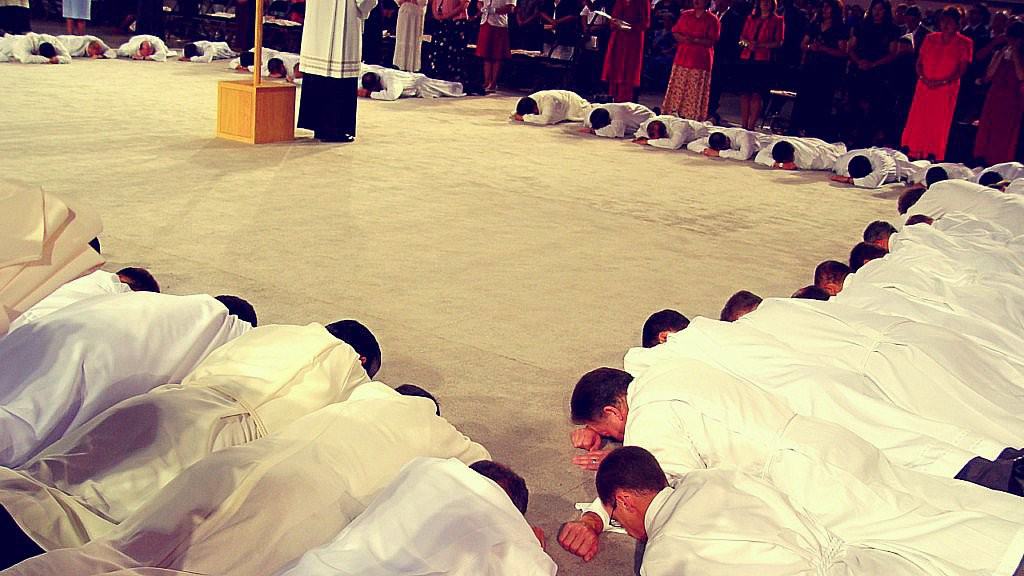Celibacy has been a longstanding practice in various religious traditions, often viewed as a path to spiritual purity and devotion. But is it realistic to expect individuals to live without sexual intimacy permanently? This question has sparked debates among theologians, psychologists and sociologists alike, especially in light of recent scandals involving religious leaders.
Understanding Celibacy in Religious Contexts
Celibacy, derived from the Latin word caelibatus meaning “state of being unmarried,” is more than just refraining from marriage; it encompasses a commitment to abstain from all forms of sexual activity. In the Catholic Church, priests are expected to embrace celibacy as a way to dedicate themselves fully to God and their congregation. Similarly, Buddhist monks practice celibacy to achieve higher spiritual enlightenment.
The “true” celibacy entails a life without sexual relations and without a partner or spouse. While some may equate celibacy with temporary abstinence, the former is considered a lifelong vow in many religious orders. Theological perspectives suggest that celibacy allows religious leaders to emulate the purity and sacrifice exemplified by figures like Jesus Christ.
The Psychological Dimensions of Celibacy
From a psychological standpoint, celibacy poses significant challenges. Human beings are inherently sexual creatures, driven by biological impulses and emotional needs. For many, the idea of living an entire life without sexual intimacy is difficult to comprehend.
John Wass, a professor of endocrinology at the University of Oxford, notes that testosterone motivates sexual desire in men, while women are influenced by a combination of testosterone and estrogen. “I would view celibacy as a completely abnormal state,” Wass remarks, emphasizing the natural human inclination toward sexual relationships.
The suppression of sexual desires can lead to internal conflicts and mental health issues. Individuals may struggle with feelings of loneliness, frustration and even depression. Jimmy O’Brien, a former priest who left the clergy to start a family, recalls the daily battles against desire and the profound sense of solitude that accompanied his vow of celibacy.
Sociocultural Implications in Modern Society
In today’s individualistic and highly sexualized society, celibacy is often seen as an outdated or unrealistic expectation. The Western world’s emphasis on romantic relationships and personal fulfillment makes the lifelong commitment to celibacy particularly challenging.
“The intimacy of sharing life with someone who is fundamentally on your side is denied,” reflects Vishvapani, a Buddhist practitioner. The societal norm of seeking a life partner puts additional pressure on those who choose or are required to remain celibate.
Moreover, the perception of celibate individuals as “forbidden fruit” can complicate interactions. Religious leaders may find themselves the object of fascination or challenge, further testing their commitment to celibacy.
Medical and Biological Considerations
Biologically, sexual desire is a natural part of human existence. Endocrinologists point out that hormones play a significant role in driving this desire. Can celibacy, therefore, be considered ‘unnatural’ from a medical standpoint?
While some argue that it’s possible to redirect or suppress these biological urges through practices like meditation and spiritual discipline, others believe that doing so goes against inherent human needs. The potential psychological and physiological repercussions of long-term celibacy warrant careful consideration.
Contemporary Debates and Controversies
Recent scandals involving high-ranking members of religious institutions have reignited debates over the requirement of celibacy. Accusations of misconduct suggest that the vow of celibacy may contribute to secretive or unhealthy behaviors.
“Forcing clergy to repress their desires or hide their sexual behavior has only caused harm,” opines Elizabeth Abbott, author of A History of Celibacy. Critics argue that mandatory celibacy can lead to issues like abuse or exploitation, calling into question its place in modern religious practice.
On the other hand, proponents of celibacy maintain that it’s a misunderstood concept. Father Stephen Wang, dean of Allen Hall Seminary in London, asserts that celibacy allows for a unique relationship with God and the faithful. “It’s not about repression; it’s about living in a certain way,” he explains.
Alternatives and Calls for Reform
Given the challenges and controversies surrounding celibacy, some within the religious community advocate for reform. The idea of optional celibacy has gained traction, suggesting that clergy should have the choice to marry and engage in sexual relationships.
The Catholic Church, for instance, allows married Anglican priests who convert to Catholicism to retain their marital status. This exception indicates that celibacy is a law rather than an intrinsic belief of the Church, as noted by Sandra Bell, professor of anthropology at Durham University.
Allowing optional celibacy could address issues of loneliness and make religious vocations more appealing to a broader range of individuals. However, it also raises questions about tradition, commitment and the fundamental nature of certain religious roles.
Conclusion: A Complex Intersection of Faith and Human Nature
The feasibility of celibacy in religion remains a complex and multifaceted issue. While some individuals may successfully embrace a celibate life through spiritual conviction and personal discipline, others find it an unrealistic and burdensome expectation.
Balancing the spiritual ideals of celibacy with the biological and psychological realities of human nature is a delicate task. As society evolves and new perspectives emerge, religious institutions may need to reassess the role and requirements of celibacy within their ranks.
Ultimately, the conversation about celibacy is not just about sexual abstinence but about understanding human needs, spiritual commitments and the ways in which they can coexist harmoniously.
For further reading on this topic, you may refer to:





